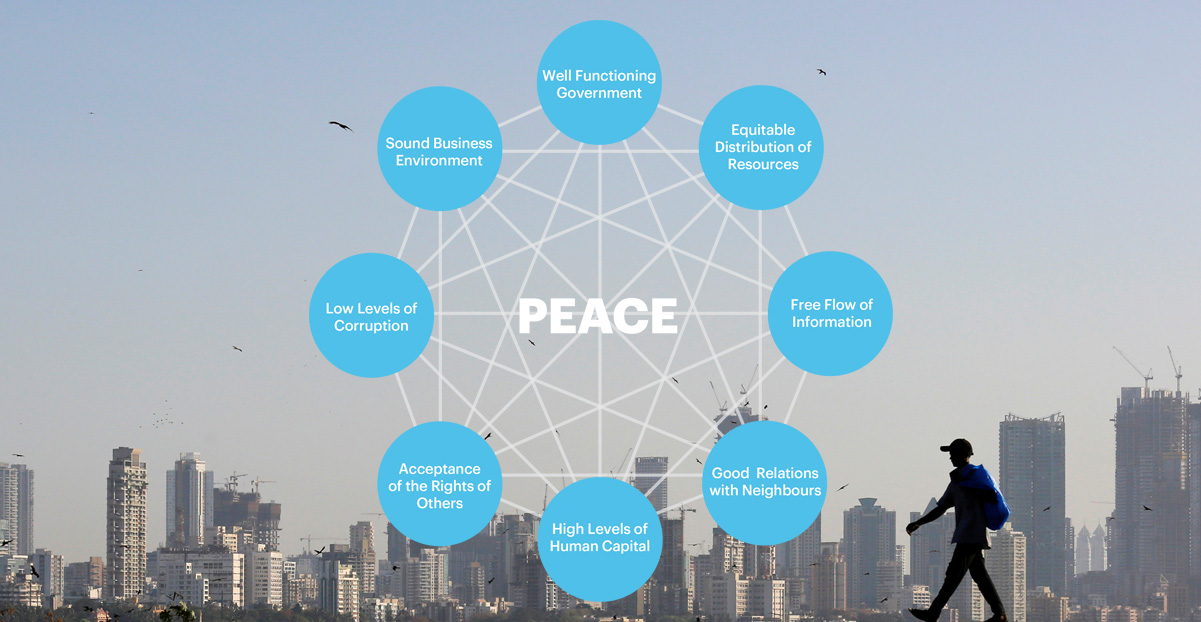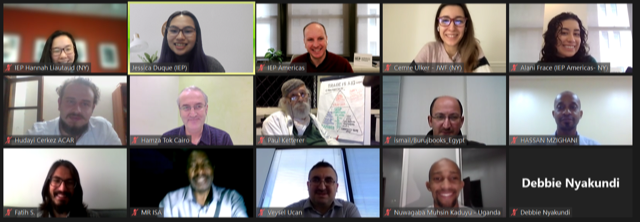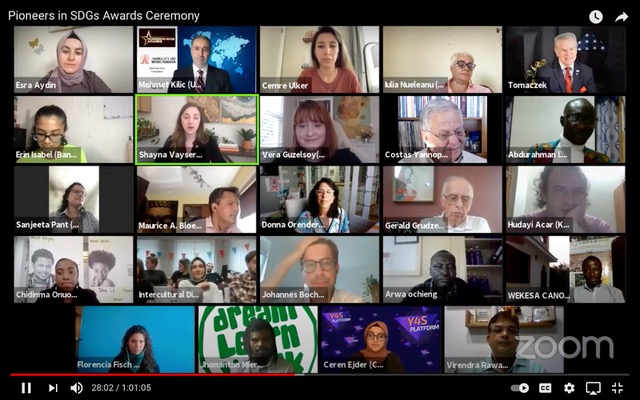Positive Peace is the successful outcome of its 8 interdisciplinary pillars that create the most productive environment for human beings to be empowered and societies to have higher standards of cohesion, diversity, and prosperity.
The concept of Positive Peace is not limited to the absence of war and conflict only. It refers to inclusive and sustainable societies where individuals are free to exercise all of their fundamental human rights and live in dignity as their political, cultural, religious, and racial identities are respected. This circle of pillars is systematically linked and interdependent of each other as improvement in one foundation creates a positive environment for other pillars to facilitate a positive social change.
The working methodology of Positive Peace corresponds to the inter-relatedness of the 17 United Nations Sustainable Development Goals aiming to promote progress on the 5 Pillars of the Agenda 2030: people, prosperity, planet, peace, and partnership. For both universal concepts to be fully implemented, civil society organizations (CSOs) are essential stakeholders.

Civil leadership in local and regional contexts provides the most effective tools of a bottom-up development approach. The active networks of civil society organizations provide the most up-to-date data, trends, and priorities for the Member States and inter-governmental bodies to develop responsive policies.
As an international civil society organization affiliated with the UN Department of Global Communications, the Journalists and Writers Foundation (JWF) creates platforms for its Global Partners from 24 countries to share innovative solutions, strategies, and disseminate effective policy recommendations for sustainable peace and development.
In this respect, under the JWF`s flagship event of UNGA Conference: Transforming Our World, Pioneers in SDGs pay tribute to outstanding individuals and organizations that contribute to sustainable peace and development while promoting and protecting the culture of peace, human rights, and sustainable development at the local, national, and global levels. Since its launch, Pioneers in SDGs presented awards, globally recognized, and disseminated 50 impactful development projects from 26 countries across the world.

It is important to continue global CSO collaborations in the long run to make a sustainable social change. Civil leaders, initiatives must be empowered with the latest capacity-building programs and advocacy tools to expand their influential role in the full achievement of all the Sustainable Development Goals and Positive Peace.
Institute for Economics and Peace and the Journalists and Writers Foundation co-organized a workshop getting together 16 civil society organizations from 10 different countries with an equal regional representation.
These 3-day virtual workshops presented the framework of the Positive Peace Pillars and created a safe-dialogue platform for the participants to integrate the lens of intersectional dimensions into their organizations, communities, and initiatives. Through the mentorship of the IEP New York Executive Team and the active participation of the attendees, this successful workshop enabled the participants to explore further opportunities in which their local work can contribute to building sustainable and positive peace.
The most outstanding feature of this international gathering has been the broad regional participation of CSOs from the Americas, Europe, Africa, and Western Asia. The diversity of the participants working towards social cohesion, interfaith and intercultural dialogue, civic education, and women’s empowerment further enriched the workshop’s content.

The interactive exercises practiced in breakout groups enabled participants to exchange valuable, meaningful reflections on how the Positive Peace Pillars are inter-connected and what are their organizations contribute to each foundation. Participants developed in-depth analysis, particularly on the role of CSOs working to promote intercultural dialogue and empowering the socio-economic skills of the refugees in their local regions.
The culture of peace norms endorsing peaceful coexistence is underlined as an important foundation strengthening the pillars of good relations with neighbors and acceptance of the rights of others. On the other hand, civil leaders stressed that successful integration of refugees is a continuum that will increase the pillars of high levels of human capital and equitable distribution of resources for peaceful societies.
Following the 3-day workshop sessions, attendees were presented with a certificate of completion recognizing their successful contributions to the six hours of training, positive peace project design, and the Peace Academy.